Parshuram
Subscribe to read full article
This section is for paid subscribers only. Our subscription is only $37/- for one full year.
You get unlimited access to all paid section and features on the website with this subscription.
Not ready for a full subscription?
You can access this article for $2 , and have it saved to your account for one year.
- Real Name: Parashuram Laxman Sonnis
- Born: 1924 (Ahmednagar, Maharashtra)
- Died: 24 /01/1978 (Bombay)
- Primary Cinema: Hindi
- Spouse: Leelabai
Parashuram Laxman Sonnis, credited as Parsuram or Parshuram in movies, was born in the year 1924 in a small village of Ahmednagar district of Maharashtra in a very poor family. Some accounts suggest he lived in Nasik. He was fond of reading but due to poverty, he was forced to quit school after 4th Standard. But that did not deter him from continuing to read whatever he could find which helped him in polishing his language and gain knowledge. He was also fond of acting and singing from a young age.
In 1934, when Parshuram was about ten, his father shifted to Bombay. There, after some struggle, on the recommendations of actors Rajwade and Popat, he was employed as an extra with Ranjit Movietone for a monthly salary of twenty rupees. However, due to riots, he was forced to run away from Bombay after 7-8 months of being employed. When he returned, the manager shooed him away, “This is not a dharamshala where you can come and go at will.”
His father took him to Pune to meet V. Shantaram, who initially rejected the plea to hire the boy. “We don’t employ children. It impedes their education.” On his father’s insistence, he agreed to hear Parshuram sing. Shantaram was so impressed with the boy’s singing that he gave Parshuram a five-year contract in Prabhat Film Company for a monthly sum of five rupees, with a place to stay, food and other necessities thrown in. His father left after depositing Parshuram in Shantaram’s care. At Prabhat, Parashuramlearnt music from stalwarts like Master Krishnarao Phulambrikar and Keshavrao Bhole, both big names in classical and film music of that era.
Parshuram’s film career began with V. Shantaram’s milestone bilingual Duniya Na Maane/Kunku (1937). He played the role of a beggar boy in the film. His song Man saaf year hai ke nahin from the film became very popular. His next film was Prabhat’s Gopal Krishna (1938), another Hindi and Marathi bilingual in which he played Mansukha. The film had four solo songs by Parshuram.He also sang alongside Shanta Apte and Ram Marathe in the song Naachat jhumat jaye Gokul. His next film was another bilingual, Mera Ladka (Mazha Mulga in Marathi) (1938). Parshuram sang a song with Master Chhotu, a reputed stage artist.
In 1940, Parashuram married Leelabai. Shantaram gave him five hundred rupees for the marriage, a generous sum for those times. Parashuram and Leelabai had one son and two daughters from their marriage.
This was the period when Shantaram was having trouble at Prabhat and was looking to venture out on his own. Parshuram, since he was a favourite of Shantaram’s, stopped getting films in Prabhat. He was left to do household work in his mentor’s house. Frustrated, he left and took up a job in a cloth mill in Indore. Meanwhile, Shantaram left Prabhat and started Rajkamal Kalamandir Studios in 1942. He called Parshuram and employed him at eighty rupees’monthly salary. Shantaram permitted him to do films outside of Rajkamal.
Parashuram bagged a role in Rajkamal’s maiden film, Shakuntala(1943), in which he played Kanva Muni. He sang two songs in the film, one with Jayashree (Shantaram’s wife) and another with Zohrabai Ambalawali. His next film was Parbat Pe Apna Dera (1944). His other films with Shantaram were Jeevan Yatra (1946), Matwala Shair Ramjoshi (1947, Lokshahir Ramjoshi in Marathi), Andhon Ki Duniya (1947),Bhool (1948), Apna Desh (1949), Murliwala (1951), Teen Batti Char Raasta (1953) and Geet Gaaya Patharon Ne(1964).
During this time, Parshuram also worked in Chor Bazar (1954), House No. 44 (1955), Jagte Raho (1956) and Bhagam Bhag (1956).In Bharat Bhushan’s home production, Basant Bahar (1956), Parshuramlip-synched to the popular song of Bhimsen Joshi and Manna Dey, Ketaki gulab juhi champa. “Perhaps he was the only one in those days to get playback from Bhimsen Joshi!”, says film historian ArunkumarDeshmukh in his book Forgotten Artists. This was followed by Khuda Ka Banda (1957), Khazanchi (1958), Barkha (1960), Shriman Satyawadi (1960), Saranga(1961), King Kong (1962), Aashiq (1962), Main Chup Rahungi (1962), Aap Ki Parchhaiyan (1964), Rustom-e-Hind (1965), Bheegi Raat (1965), Bharat Milap (1965), Afsana(1966), Laadla (1966), Ram Aur Shyam (1967), Majhli Didi (1967), Suhag Raat(1968), Safar (1970) and Man Mandir (1971).
Parshuram also worked in 6 Marathi films: Kunku, Gopal Krishna, Maza Mulga, Lokshahir Ramjoshi, Amar Bhoopali (1951) and Vaijayanta(1960). He had a good relationship with A. V. Meiyappan, founder of AVM Productions. He was a frequent flyer to Madras in those days for shooting. He lived in Bungalow No. 5, Gali No. 3, Vincent Square, Dara, Bombay in his heydays.
His downfall started with the industry shifting gears into different style and genre of films in the early 1970s. Tragically, around this time, he broke his leg in an accident, giving him a permanent limp. “He fell into bad company and began drinking in frustration, and even showed up drunk on set.”According to Deshmukh, “Somehow, he worked in a few films as an uncredited extra. His family life was devastated due to his drinking, and his wife and son deserted him. They too had to make ends meet somehow. Parshuram started asking for and borrowing money from everybody for drinks. People began avoiding him and he became almost a beggar.”
Sometime in 1976-77, actress Tabassum spotted Parshuramin a bad state at the Lucky Hotel traffic light at Bandra. “She brought him to TV station, fed him, cleaned him up, gave him some clothes and did a live talk show with him on her programme. She also gave him one thousand rupees.” After his interview was telecast, Shiv Sena announced a pension of Rs. 100 per month to him. Rejected by family and ruined by alcohol, he was found unconscious on the footpath one day. He died in a hospital on the 24 January, 1978. His daughter performed his last rites.
His wife died on soon after on 26 June, 1981, and his son died in 1982. Mangesh Barde, grandson of Parshuram (his daughter’s son), is settled in New Zealand where he works for an airline company. He lives with his family (wife and son). His two daughters are also married happily.
-
Filmography (36)
SortRole
-
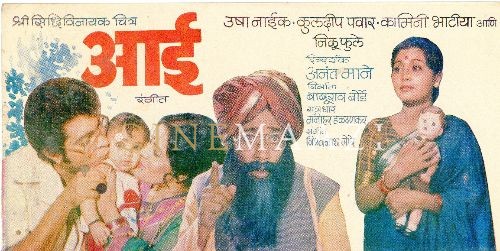
Aai 1981
-

Afsana 1966
-
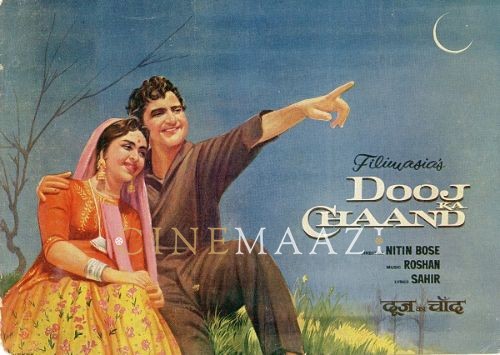
Dooj Ka Chand 1964
-
Qawali Ki Raat 1964
-
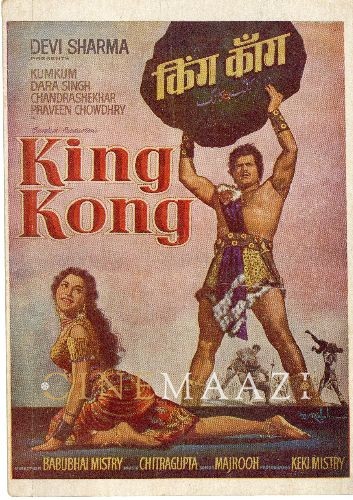
King Kong 1962
-

Aashiq 1962
-
Jadoo Mahal 1962
-

Saranga 1961
-
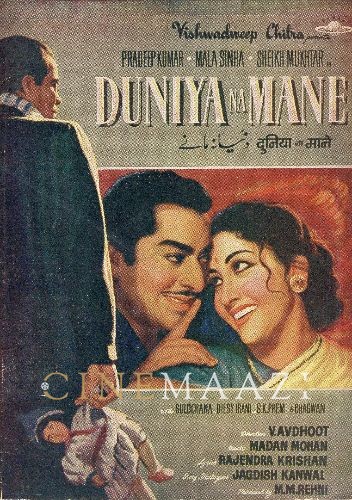
Duniya Na Mane 1959
-






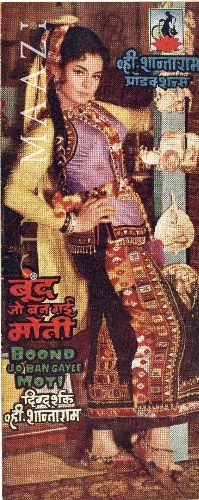
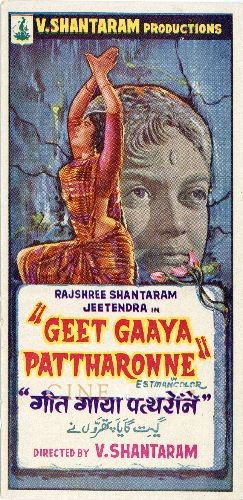
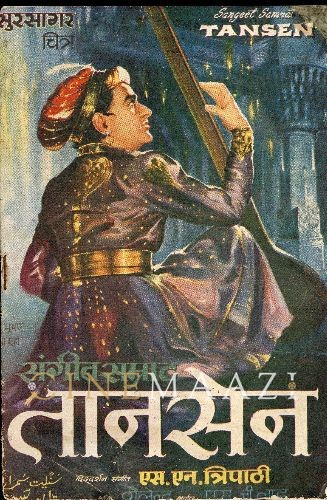

.jpg)



